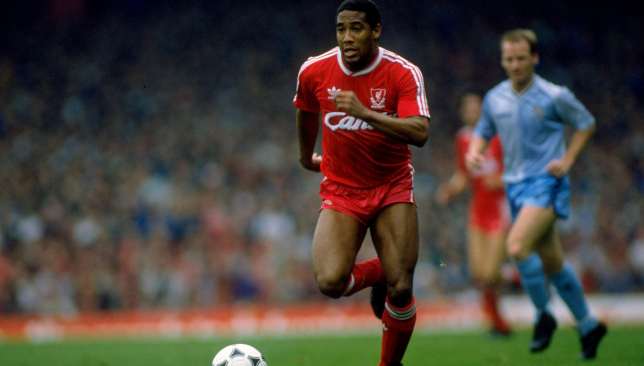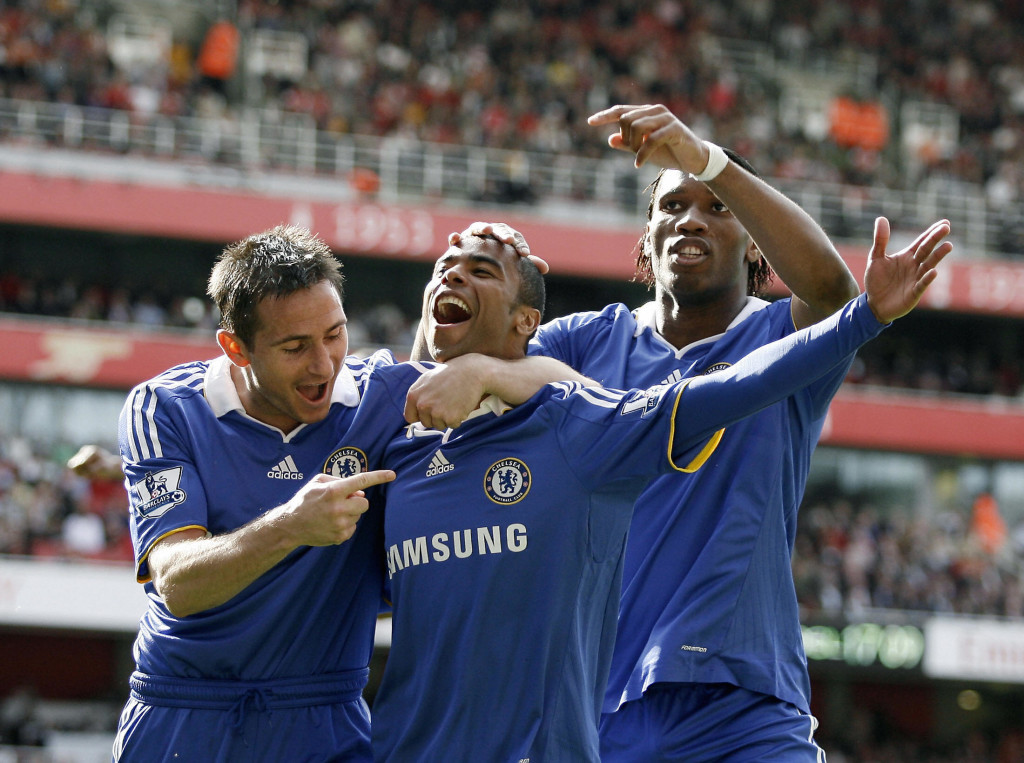
A lot has changed in the four decades since Viv Anderson made history by becoming the first black player to represent England, in 1978, and Callum Hudson-Odoi the 90th, and latest, in March.
The global population has almost doubled from 4.3 billion to 7.7 billion. The invention of the internet has changed the way we do…everything. And the UAE has transformed from a sleepy, arid land of sand and shepherds into a global financial superpower.
Real progress and innovation in healthcare, technology and education has seen the world move on immensely and become an even more colourful, multi-cultural, progressive and inclusive place to live.
Then again, the obscene racist abuse of England’s black and ethnic players in Montenegro three days after exciting Chelsea prospect Hudson-Odoi made his bow, proves that some things might never change.
After Anderson, Laurie Cunningham and Cyrille Regis quickly followed as footballing pioneers for the Three Lions, given their debuts in 1979 and 1982 respectively by manager Ron Greenwood.
Ricky Hill, Luther Blissett and Mark Chamberlain followed suit as part of 12 players given their debuts by Sir Bobby Robson. John Barnes was the seventh BME (Black and Minority Ethnic) player to pull on the famous white shirt on May 28, 1983, coming on as a second-half replacement for Watford team-mate Blissett in a 0-0 draw with Northern Ireland in Belfast.

Barnes, won two league titles with Liverpool, says racism has never gone away.
The BME Players index – a collection of footballers of minority backgrounds that have represented England – reached 90 when Chelsea teenager Hudson-Odoi made his Three Lions bow in the 5-0 win over the Czech Republic at Wembley on March 22.
There should have been a semblance of the topic coming full circle as the 18-year-old featured as a 70th-minute substitute in a win against the same opposition Anderson was introduced to the international stage 41 years earlier.
Instead, three days later in Podgorica, Hudson-Odoi, Raheem Sterling, Kyle Walker, Danny Rose and Dele Alli were all subjected to monkey chants and booing throughout England’s 5-1 victory, by home fans.
The abuse was vile and disturbing, but not surprising, least of all to Barnes – who claims the issue of racism may have subsided or gone underground, but has never gone away.
“It never went away, people are just keeping their mouths shut,” says Barnes, speaking exclusively to Sport360.
“Racism, it’s nothing to do with football, it’s to do with society. Football fans are part of modern society first and football fans second. They are racially-biased members of society and carry their prejudices to football matches, not the other way round.”
The more worrying thing is that racism can’t be eradicated from football, according to the Jamaica-born Barnes who, with 79 England caps, is the third highest-capped BME England player after Ashley Cole (107) and Rio Ferdinand (81).
“Football can’t get rid of racism. Only through education and making people aware of why it’s wrong to be racist (can something be done),” added Barnes, who took part in the DHL Swing Against Cancer Golf Series which began with the DHL Open at Dubai Creek Golf & Yacht Club on May 2.
“It’s nothing to do with football, it’s to do with the perception of different groups of people. Because of the way we’ve been brought up and what life has shown us. Football has got nothing to do with racism, life has.
“All football can do is pass laws to stop people being racist and to keep their mouths shut, that’s why we thought we got rid of it. Because when the laws were passed, to kick people out of football matches, they kept their mouths shut.”
Barnes, who enjoyed the most successful period of his career when he left Watford in 1987 for a glorious 10-year spell at Liverpool, claims the Brexit debacle, as well as heightened racial tension and instances of abuse and attacks around the world in recent years, proves racism in sport, and football in-particular, is not only still alive, but unfortunately thriving.
“Of course now, people are getting too open and being influenced by what’s going on around the world and Brexit,” adds the 55-year-old.
“It seems okay now to be a bit more right wing which is why it’s coming up again.
“Until we get rid of it in society, it will exist in football. And the more the authorities and everyone absolves themselves of responsibility, until they look at themselves, nothing will change.
“For 90 minutes on a Saturday people won’t have heard it. But the other six days a week, we’re seeing it in inner cities all around the world. Just because we hadn’t been hearing it at football matches, doesn’t mean it didn’t exist. And now it’s reared it’s ugly head again.”
The biggest number of BME players to come through for England was 16 under Sven-Goran Eriksson from 2001-06. Since being appointed in 2016, Gareth Southgate has brought through 11 more.
The likes of Sterling, Hudson-Odoi, Walker, Rose, Alli, Jesse Lingard, Ruben Loftus-Cheek, Joe Gomez, Trent Alexander-Arnold, Jadon Sancho and Marcus Rashford are part of the core group for England at the moment and moving forward.
The nation’s superb progress under Southgate, highlighted by a first trip to a major tournament’s semi-finals in 28 years at last summer’s World Cup, could perhaps be in danger of being derailed.
But Barnes insists it’s disrespectful to his generation to suggest today’s racism is something that could weigh heavily on the minds of England’s current crop of BME players.

Ashley Cole (c) is England’s most capped BME player with 107.
“England have always had a lot of young black players; Luther Blissett, Viv Anderson, Cyril Regis, John Barnes,” said Barnes, who has criticised Sterling despite the fact he’s won many plaudits for his public stand in Montenegro and on racism in football in a wider sense.
“Nothing’s new, I don’t know why we’re trying to pretend this is a new England team with black players. Black players have been around for the last 30-40 years. This idea that we have this ethnically diverse new England team, it’s a myth. It’s disrespectful to black players of the past.
“I believe Raheem made a mistake. If Raheem Sterling, and Raheem seems to be the voice, is saying Montenegro have to pay for a few racist fans and be kicked out of competitions and stadiums should be closed down, then he should have said the same thing when he got racially abused at Chelsea (the 24-year-old reported being racially abused during City’s 2-0 loss at Stamford Bridge last December).
“But he didn’t say the stadium should be closed down and they (Chelsea) should be kicked out of the Premier League. That’s why we need to be consistent in the message. We can’t just pick on eastern Europe and say ‘how terrible it is’ and not look at what’s happening in this country. “Kicking Montenegro out, Chelsea out, banning players, players walking off the field, I don’t believe that’s the answer.
“If we’re critical of Montenegro we have to say the same thing in England. But because we like to absolve ourselves of responsibility and point out someone else’s flaws, it doesn’t happen.
“Education is the only way (to solve racism). Not banning people or changing laws. If you’re not allowed to make a monkey chant at a black player because you know you’re going to get kicked out of the ground, every time a black player gets the ball he’ll get booed, and you’ll know why, but it’s legal.
“There’s always going to be ways for you to show your prejudices without it being legal.
“Why not come up with a solution to make them not want to do it rather than banning them? Laws have never stopped discrimination in 1,000 years, so I don’t know why people thing laws will stop it now.”